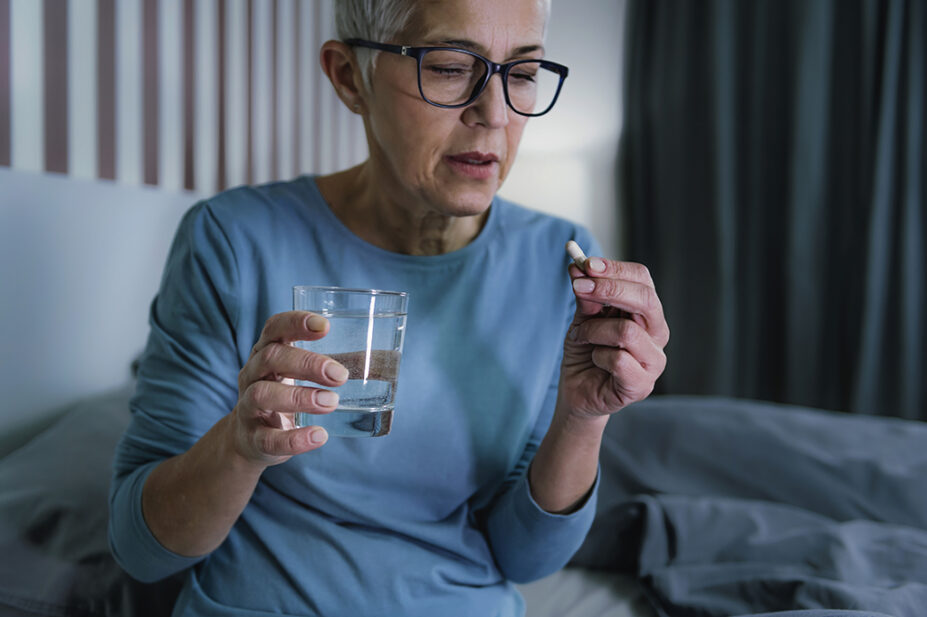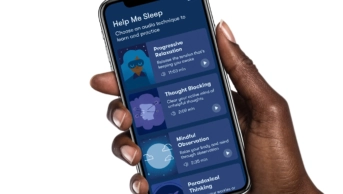
MICROGEN IMAGES/SCIENCE PHOTO LIBRARY
The National Institute for Health and Care Excellence (NICE) has made its first specific recommendation of a pharmacological treatment for long-term insomnia.
Daridorexant (QUVIVIQ; Idorsia) is a pill taken once per night, within 30 minutes before going to bed, which blocks the action of two types of orexins — chemicals that regulate wakefulness — to improve night-time sleep and daytime functioning.
In a statement published alongside the final draft guidance on 15 September 2023, NICE said it estimated that “just over 20,000 people in England” could receive daridorexant treatment in its first year as uptake would be dependent on receiving a diagnosis of long-term insomnia that has not resolved through improved sleep hygiene or through cognitive behavioural therapy for insomnia (CBTi) — if available and suitable — from a GP.
The treatment will be offered to adults with insomnia, who have symptoms lasting for three nights or more per week for at least three months and whose daytime functioning is considerably affected.
Guidance from NICE on treating long-term insomnia, last revised in May 2022, says that “pharmacological therapy should be avoided in the long-term management of insomnia”, although it says that a short course of a hypnotic drug, or modified-release melatonin for patients aged over 55 years, could be considered.
NICE has not previously recommended pharmacological treatment for long-term insomnia. It said that the standard first-line treatment remains a combination of “both sleep hygiene advice and cognitive behavioural therapy for insomnia”, with daridorexant offered as a second-line treatment option.
Evidence on the drug, submitted to NICE’s independent appraisal committee, showed a reduction in insomnia compared with a placebo over a 12-month period. The committee concluded that daridorexant was effective in improving symptoms related to long-term insomnia, reducing the time it takes for the person to fall asleep after going to bed and the total number of minutes that a person is awake after initially falling asleep.
Commenting on the guidance, Lisa Artis, deputy chief executive officer of The Sleep Charity, said: “Today’s announcement from NICE will come as welcome news for patients by making available a suitable new treatment option. While many of us experience short periods of poor sleep, there are many people who live with chronic insomnia, who struggle to get support, and this has a major impact on their overall health and wellbeing.
“CBTi is still the recommended first line of treatment, but this is another option for where CBTi is unavailable, not suitable or has been tried and been unsuccessful.”
Adrian Zacher, chief executive officer of The British Society of Pharmacy Sleep Services charity, said: “I think it’s long awaited and I’m delighted to see QUVIVIQ recommended in these guidelines. Alternatives are desperately needed to Z-drugs and this holds great promise because it’s believed not to have the same tendency for habit-forming properties, which can only be a good thing. QUVIVIQ has already had FDA [US Food and Drug Administration] and EU approval, so this is really good news for insomnia patients.”
The final NICE guidance is due to be published on 18 October 2023.


